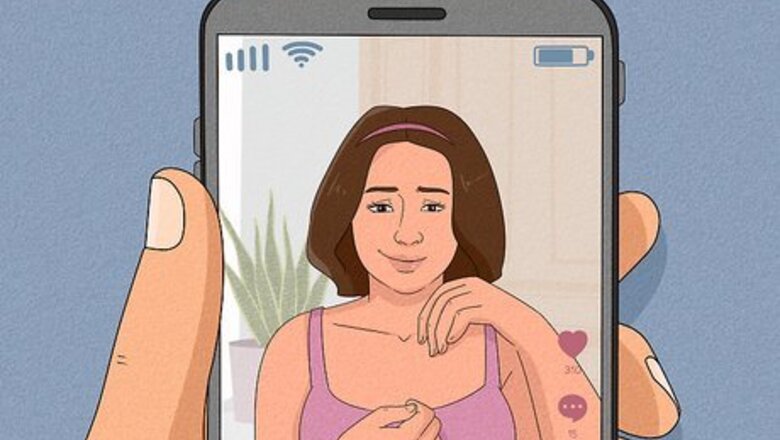
views
Warning: This article references subjects like self-harm, depression, anxiety, and mental illnesses.
- "U handled it so well" is a caption sometimes used on social media video clips about mental health and the struggles of depression and anxiety.
- Video creators use the "U handled it so well" caption to imply they seemed to handle a situation well because they used self-harm as a coping tactic.
- “U handled it so well” is also part of an ASL (sign language) trend on TikTok where creators respond to the statement by signing, "My soul died."
What is “U handled it so well” referring to?
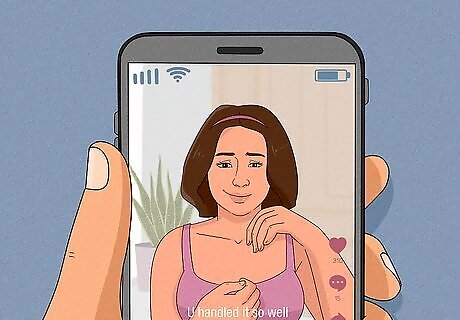
“U handled it so well” is a video trend about coping with internal struggles. Videos captioned “U handled it so well” on social media revolve around the idea that while people may appear to handle tough situations well on the outside, they may actually be struggling internally. “U handled it so well” videos also imply that some people appear to handle situations well because they self-harm as an unhealthy coping mechanism. For example, you might see a “U handled that so well” TikTok video where the person in the video grimaces and holds a piece of clothing away from their skin (hinting they self-harmed to escape their feelings, and it hurts). These videos are mainly made by young people venting about their mental health struggles and expressing themselves in a slightly sarcastic yet deeply honest way. On platforms like TikTok, many videos are tagged with things like #depression, #anxiety, #mentalhealth, or #sh (self-harm), so you can avoid them (or search for them) using hashtags.
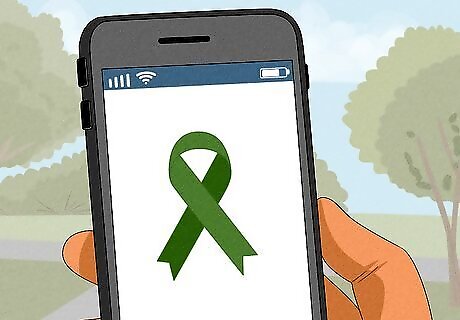
“U handled it so well” videos spread mental health awareness. Many video creators post and share “U handled it well” videos to encourage the idea that having problems with mental health is a normal thing—and that anyone struggling is not alone. By openly sharing their troubles, they can find other people dealing with the same issues (and unhealthy habits) and even offer one another support. Remember that self-harm is never something that should be encouraged. The videos you might find will likely commiserate about it but never glorify it. If anyone does give you a hard time or encourages you to do something unhealthy on TikTok (or any other social media platform), don’t hesitate to block and report that account.
“U Handled It So Well” ASL on TikTok
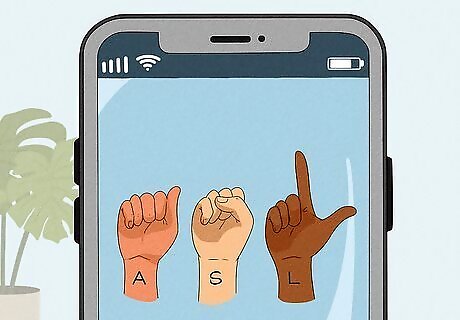
“U handled it so well” also refers to an ASL video trend about loss. These videos typically have a caption saying something like, “You handed their passing so well” (referring to a loss in the video creator’s life). As the video plays, the creator will use American sign language (ASL) to say, “My soul died,” implying that they seemed to handle something well because they’re suffering internally. The captions for these videos change based on the kind of loss the creator is dealing with. While loss is the common theme of these captions, they can refer to anything from the death of a loved one to a bad breakup.
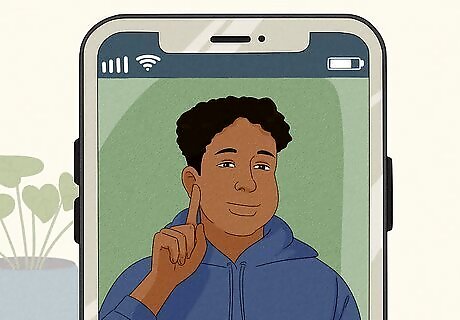
The videos are part of a wider effort to teach and learn ASL on TikTok. They fall under the umbrella of a growing community on TikTok comprised of deaf and hard-of-hearing users creating content and demonstrating ASL translations of different phrases. Other popular TikTok videos in this category involve covers of songs in ASL or slice-of-life videos about what it’s like to be deaf. For example, there are a lot of videos featuring a deaf or hard-of-hearing creator signing the lyrics to a song along with the music, showing other TikTok users how to do it. The “U handled it so well” ASL trend is pretty specific, but it still relates back to the overall growing popularity of ASL videos on TikTok!
Coping with Mental Health Challenges

Check in with yourself daily to keep track of distressing thoughts. Each day, check in with yourself and ask, “How am I feeling right now?” Try to name each emotion that you feel and acknowledge any negative thoughts you’re having. Naming and noticing your thoughts can make it easier to remain calm when you feel stressed, anxious, or depressed. If you detect any distressing thoughts, try pausing for a few minutes and taking deep breaths to shut down your body’s natural fight, flight, or freeze response.

Use cognitive reframing to find positivity in a tough situation. Cognitive reframing is the idea that your thoughts directly affect your behavior. Basically, negative thoughts cause negative behavior, and positive thoughts lead to positive actions. So, when you’re having a lot of negative thoughts, try to reframe them more positively or productively. This technique can give you a more optimistic outlook on life. For example, say you’re feeling upset and thinking to yourself, “I’ll never be able to get through all of this work. This is impossible, and I’m going to fail.” Reframing that thought might look something like, “I can do this. I have a lot to do, but if I make a plan and take it one step at a time, I’ll get through this and succeed.”

Keep a journal to reflect on your thoughts and process your emotions. Journaling is a helpful tool that allows you to write what you’re feeling and why. When you’re dealing with a major stressor in your life, whatever it might be, open up a new page in your journal and write about it. A journal is a safe space to vent about mental health struggles, things that frighten you, and other difficult subjects.

Calm yourself down with meditation and breathing techniques. Doing meditation exercises is a simple way to calm and center yourself when you’re dealing with stressors. You can alternatively focus on breathing exercises if you don’t want to do a full meditation session. Deep breathing is another effective calming tool that can slow your heart rate when you feel extremely worked up. If you opt for deep breathing, try the 4-7-8 method: inhale through your nose for 4 seconds, hold your breath for 7 seconds, then exhale through your mouth for 8 seconds. If you prefer guided meditation exercises, apps like Headspace and The Mindfulness App are great places to start.
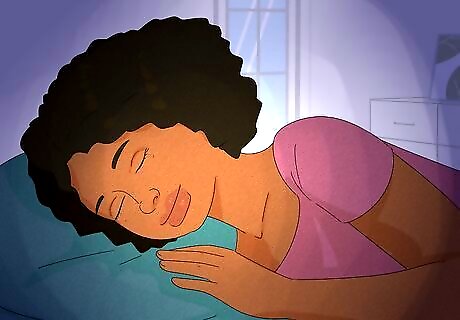
Take care of your physical and mental health. Make time for things like physical activity, regular balanced meals, sleep—and, of course, things you enjoy, like hobbies and friends. Exercise is a great stress reliever. You don’t have to do anything strenuous; even a walk around the block helps. Healthy meals can boost your mood, and sleep improves your ability to cope with stressful things during the day. When you take care of yourself, your mood may also improve. It’s not the cure-all for mental illness, but it can certainly help you feel a little more like yourself on a bad day. Taking care of yourself isn’t always easy, especially when you’re grappling with your mental health. As much as it might feel tiring and difficult, it really is worth the effort! Don’t beat yourself up if you let things slide and can’t take care of yourself one day. Treat yourself with compassion, and try again the next day.

Make time for meaningful activities and hobbies. Focusing on hobbies and activities that are meaningful to you can reduce feelings of stress, depression, anxiety, and so on. Ask yourself, “What do I wish I could have more of in my life?” Once you know what you want, create a schedule that allows you to do more things that bring you joy and fulfillment. For example, you might decide that you really want more time to play your guitar each week and block out an hour of practice time every night.

Distract yourself if you feel the urge to self-harm. A distraction can refocus your mind on something other than the pain you’re feeling and potentially help you resist the urge to self-harm. Depending on what you feel, there are many ways to distract yourself, and what works for some people might not work for others. Try out several methods, and reuse the ones that work best for you. For example, you could vent anger by exercising or punching a cushion. If you feel sad, you could wrap yourself in a blanket or lie down and take deep breaths. If you feel numb inside, try flicking an elastic band on your wrist or sniffing something with a strong smell (that you enjoy). If you’re grappling with self-hatred, try writing a letter about it, and then write a second, more compassionate letter in response. If nothing else, press pause for 5 minutes when you feel the urge to hurt yourself and take deep breaths to clear your head. The simple act of waiting can give you time for the urge to pass.

Reach out to a friend, family member, or professional for support. When you’re dealing with a lot of emotional pain or stressors, having a strong support system can make all the difference. Talk to a trusted friend or family member about how you’re feeling. Or, if you feel that therapy would help you, find a therapist who can listen to you and offer you support. If you’re not sure where to find a therapist, try a platform like BetterHelp, which matches you up with a therapist based on your needs and budget. Remember, you can take this one step at a time. You aren’t obligated to share anything you’re not ready to reveal.




















Comments
0 comment